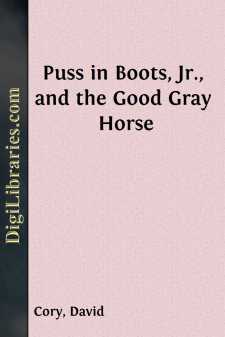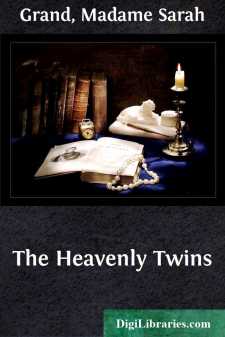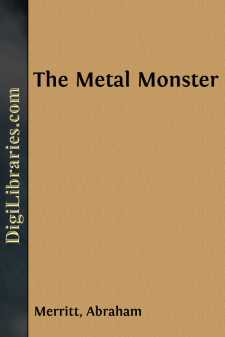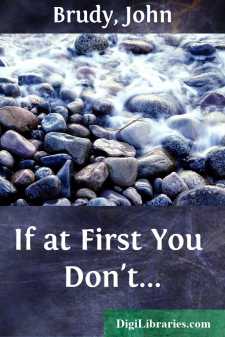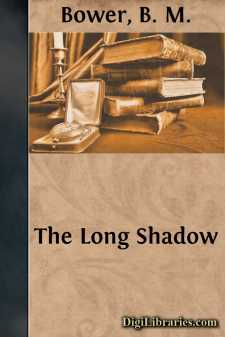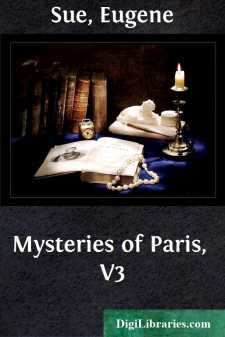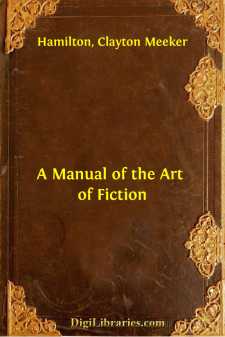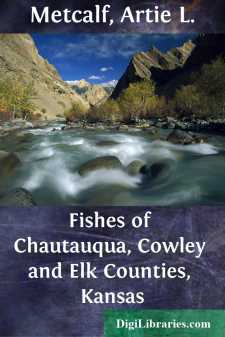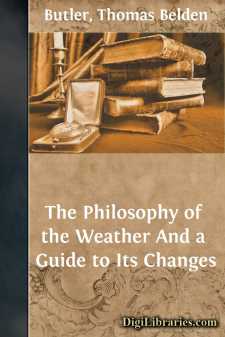Fiction
- Action & Adventure 180
- Biographical 15
- Christian 59
- Classics 6965
- Coming of Age 5
- Contemporary Women 3
- Erotica 8
- Espionage/Intrigue 12
- Fairy Tales, Folklore & Mythology 236
- Family Life 169
- Fantasy 117
- Gay 1
- General 596
- Ghost 32
- Historical 808
- Horror 43
- Humorous 160
- Jewish 25
- Legal 4
- Medical 22
- Mystery & Detective 315
- Political 49
- Psychological 41
- Religious 64
- Romance 159
- Sagas 11
- Science Fiction 730
- Sea Stories 113
- Short Stories (single author) 537
- Sports 10
- Suspense 1
- Technological 8
- Thrillers 2
- Urban Life 31
- Visionary & Metaphysical 1
- War & Military 173
- Westerns 199
Fiction Books
Sort by:
by:
David Cory
THE MAGIC WINGSONE morning as little Puss, Junior, on his Good Gray Horse rode through Mother Goose country he saw a spider sitting in her tiny lace house. She kept very still, for the early dewdrops still clung to the delicate web. And as the sun shone down they looked for all the world like diamonds on a piece of lace. So little Puss, Junior, stretched out his paw and, would you believe it, instead...
more...
PROEM. Mendelssohn's "Elijah." [Illustration: (musical notation); lyrics: He, watch-ing o-ver Is—ra—el, slumbers not, nor sleeps.] From the high Cathedral tower the solemn assurance floated forth to be a warning, or a promise, according to the mental state of those whose ears it filled; and the mind, familiar with the phrase, continued it involuntarily, carrying the running...
more...
by:
Abraham Merritt
PROLOGUE Before the narrative which follows was placed in my hands, I had never seen Dr. Walter T. Goodwin, its author. When the manuscript revealing his adventures among the pre-historic ruins of the Nan-Matal in the Carolines (The Moon Pool) had been given me by the International Association of Science for editing and revision to meet the requirements of a popular presentation, Dr. Goodwin had left...
more...
by:
John Brudy
To Amos Jordan, Secretary for Cislunar Navigation, no situation was unsolvable. There were rules for everything, weren't there.... Except maybe this thing ... "What's the matter, anyway?" Amos Jordan snapped at his assistant. "Is everyone in the Senate losing their mind?" "No more than usual," said Clements, the undersecretary. "It's just a matter of...
more...
by:
B. M. Bower
CHAPTER I. Charming Billy Has a Visitor. The wind, rising again as the sun went down, mourned lonesomely at the northwest corner of the cabin, as if it felt the desolateness of the barren, icy hills and the black hollows between, and of the angry red sky with its purple shadows lowering over the unhappy land—and would make fickle friendship with some human thing. Charming Billy, hearing the crooning...
more...
"The dream of Pharaoh is one. The seven kine are seven years; and the seven good ears are seven years: the dream is one…. And for that the dream was doubled unto Pharaoh twice, it is because the thing is established."… In other words: Behind three or four subtitles and changes of time, scene, characters, this tale of strong hearts is one. And for that the tale is tripled or quadrupled unto...
more...
by:
Eugene Sue
CHAPTER I. IN THE NOTARY'S OFFICE. Brain, or heart of the land, which you will, as large cities are, Paris may claim to have nerves, muscles, and arteries centering in it, which but few capitals, by right of size, passions, horrors, loves, charms, mysteries, in a word, can reveal. To trace its emotions, impulses, secrets, wounds, cankers, joys, the following pages are devoted. We must begin by...
more...
INTRODUCTION In our time, in these early years of the twentieth century, the novel is the prosperous parvenu of literature, and only a few of those who acknowledge its vogue and who laud its success take the trouble to recall its humble beginnings and the miseries of its youth. But like other parvenus it is still a little uncertain of its position in the society in which it moves. It is a newcomer in...
more...
by:
Artie L. Metcalf
INTRODUCTION Aims of the distributional study here reported on concerning the fishes of a part of the Arkansas River Basin of south-central Kansas were as follows: (1) Ascertain what species occur in streams of the three counties. (2) Ascertain habitat preferences for the species found. (3) Distinguish faunal associations existing in different parts of the same stream. (4) Describe differences and...
more...
INTRODUCTION. The atmospheric conditions and phenomena which constitute “The Weather” are of surpassing interest. Now, we rejoice in the genial air and warm rains of spring, which clothe the earth with verdure; in the alternating heat and showers of summer, which insure the bountiful harvest; in the milder, ripening sunshine of autumn; or the mantle of snow and the invigorating air of a moderate...
more...


